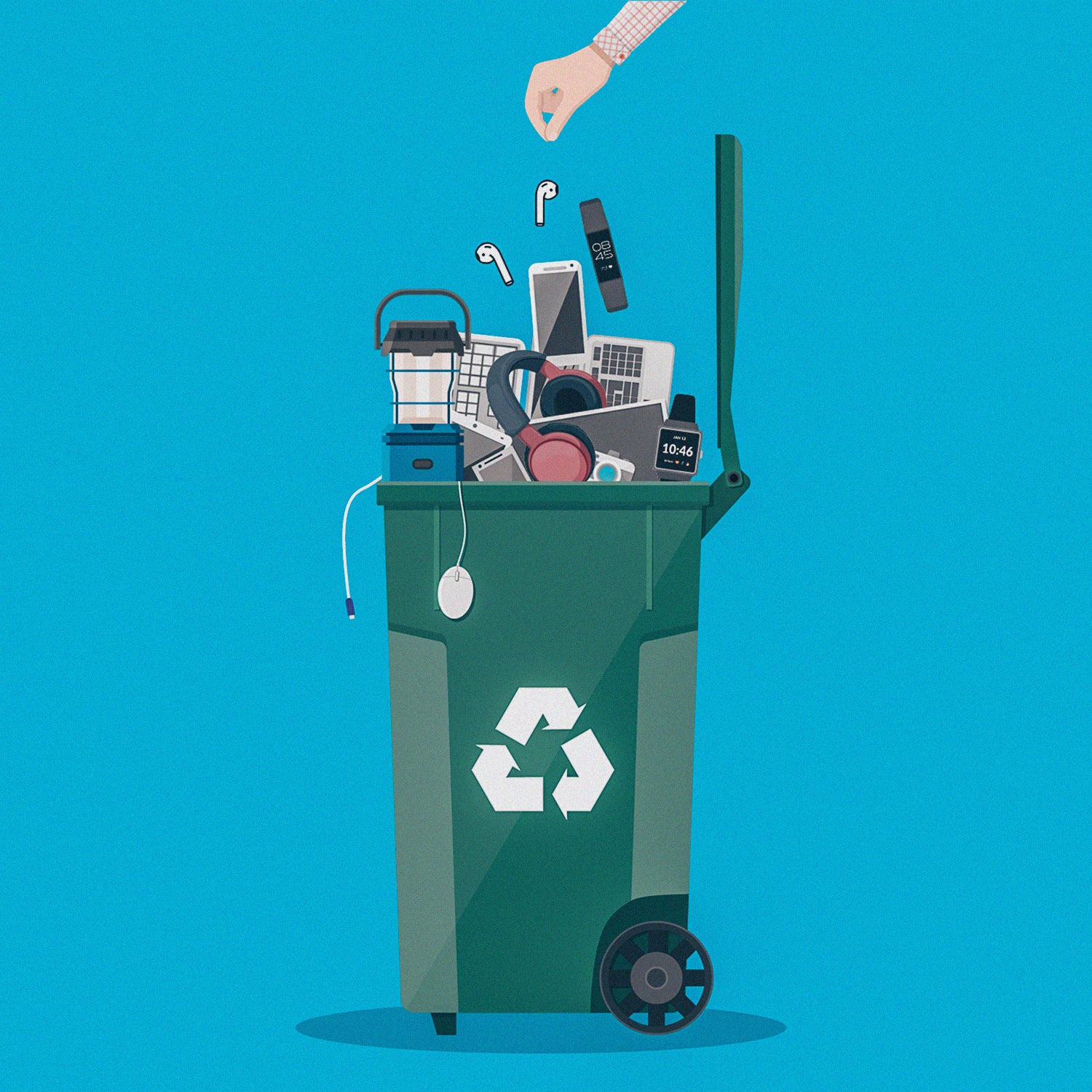Partner with R2 Certification Recyclers: Safeguard Data and Safeguard the Atmosphere
Master the Demands of R2 Certification to Make Certain Sustainable Organization Practices
Making certain sustainable company practices has actually ended up being a keystone of corporate duty in today's international landscape. At the leading edge of this motion is the R2 certification, an extensive requirement that establishes bench high for electronic devices recyclers and refurbishers. As services aim to straighten with environmentally aware practices, mastering the needs of R2 qualification is paramount. By adhering to these requirements, companies not just boost their ecological reputation yet additionally gain a competitive edge in a progressively eco-conscious market. The roadmap to accomplishing R2 accreditation is multifaceted, involving a deep understanding of key components, precise actions towards conformity, and a commitment to recurring upkeep. In a globe where sustainability is no more a plain buzzword yet a service crucial, delving right into the ins and outs of R2 accreditation is a tactical step that can pave the means for long-lasting success and positive ecological impact.
Significance of R2 Accreditation
Accomplishing R2 Accreditation is essential for organizations aiming to demonstrate their dedication to accountable and sustainable digital waste management practices. This accreditation, created by SERI (Sustainable Electronic Devices Recycling International), establishes the standard for liable reusing practices in the electronic devices industry. By obtaining R2 Accreditation, companies signal to their stakeholders that they stick to strict environmental, health, and safety guidelines while managing electronic waste.
One of the key reasons that R2 Qualification is vital is its emphasis on sustainability. With digital waste being a considerable global issue, organizations need to display their commitment to lessening the ecological effect of their operations. R2 Certification requires companies to carry out procedures that guarantee the correct handling, refurbishment, and recycling of electronic waste, thus adding to the circular economic climate and reducing the buildup of e-waste in garbage dumps.
In Addition, R2 Qualification improves a firm's track record and reliability. In today's environmentally mindful market, partners and consumers are significantly seeking to team up with services that prioritize sustainability. By accomplishing R2 Certification, business can distinguish themselves as leaders in accountable e-waste management, getting an one-upmanship and attracting similar stakeholders.
Key Components of R2 Specifications

Actions to Get R2 Certification
To qualify for R2 Accreditation, organizations must thoroughly show conformity with a set of strict requirements and standards. The procedure of getting R2 Certification includes a number of vital actions.
Following, businesses require to evaluate their existing methods and processes to recognize any gaps that need to be resolved to fulfill the R2 Criterion. This might entail executing brand-new procedures, purchasing training programs, or making changes to existing procedures. As soon as any shortages are remedied, companies can continue to develop a detailed management system that lines up with the R2 needs.
Complying with the execution of the needed adjustments, businesses need to undertake a third-party Extra resources audit to confirm their conformity with the R2 Criterion (r2 certification). This audit is conducted by a certified accreditation body and consists of a detailed testimonial of the company's centers, treatments, and documents. Upon effective conclusion of the audit, businesses can obtain their R2 Qualification, showing their commitment to accountable and lasting company methods
Advantages of R2 Conformity
Companies that stick to R2 compliance requirements can open a myriad of benefits in today's sustainable service landscape. Additionally, R2 compliance advertises ecological sustainability by ensuring that electronic waste is taken care of in an environmentally friendly way, lowering the impact on garbage dumps and all-natural sources. Overall, accomplishing R2 conformity not just aids businesses satisfy regulative needs yet also promotes a culture of ecological duty and functional quality.
Maintaining R2 Certification
Demonstrating a continued commitment content to accountable electronic waste administration techniques, companies have to concentrate on the meticulous process of preserving R2 qualification. Maintaining R2 qualification entails normal audits, internal reviews, and continual renovation efforts to ensure conformity with the rigid needs stated by the Liable Recycling Practices (R2) criterion. Organizations needs to remain attentive in checking their digital waste administration processes, data safety and security steps, and overall environmental efficiency to promote their R2 qualification standing.
Normal training and education and learning for staff members are important to maintain R2 certification, as team participants require to be knowledgeable about the most up to date ideal methods and sector criteria. Maintaining comprehensive records and documents of digital waste recycling activities, downstream suppliers, and interior processes is vital for demonstrating compliance throughout audits.
Additionally, companies must actively involve with their supply chain partners and vendors to make sure that all entities included in the digital waste administration process comply with R2 standards. By cultivating a culture of openness, responsibility, and continuous renovation, companies can efficiently preserve their R2 qualification and support their dedication to sustainable organization methods.
Verdict

Attaining R2 Accreditation is important for companies aiming to show their commitment to lasting and accountable electronic waste management methods. click over here By obtaining R2 Qualification, services signal to their stakeholders that they adhere to rigorous environmental, health, and security regulations while taking care of electronic waste.
Upon effective completion of the audit, organizations can get their R2 Certification, showing their dedication to sustainable and liable company techniques.
Keeping R2 qualification involves normal audits, internal evaluations, and continual enhancement initiatives to guarantee conformity with the stringent demands established forth by the Responsible Recycling Practices (R2) requirement. By recognizing the essential elements of R2 criteria, taking the required actions to get certification, and enjoying the advantages of R2 conformity, companies can show their dedication to responsible electronic waste administration.